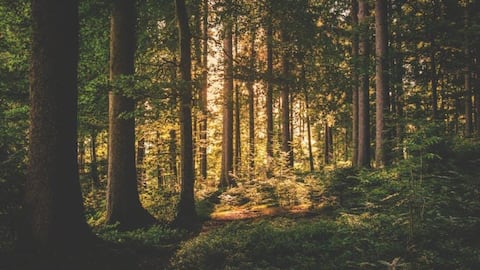Planting trees in wrong places exacerbates global warming, says study
What's the story
A recent study published in Nature Communications suggests that planting trees in unsuitable locations could unintentionally worsen global warming. The research, led by Susan Cook-Patton, a senior forest restoration scientist at The Nature Conservancy, found that increased tree cover can reduce the amount of sunlight reflected from the earth's surface. This phenomenon causes the planet to absorb more heat and can lead to "negative climate outcomes," according to Cook-Patton.
Technological breakthrough
Advanced mapping technology sheds light on albedo impact
The study focused on the concept of albedo, which measures solar radiation reflected off the Earth's surface. It is known that tree restoration can alter albedo levels, but precise tools to measure this impact were previously unavailable. With the advent of advanced mapping technology, researchers can now assess both the cooling effect of trees and the warming caused by reduced albedo. This technological breakthrough has allowed for a more nuanced understanding of reforestation's impact on climate change.
Miscalculations revealed
Albedo neglect overestimates climate benefits of reforestation
The research found that projects which failed to consider albedo in their calculations overestimated the climate benefit of additional trees by between 20% and 80%. Despite this, Cook-Patton emphasized that there are many locations where restoring tree cover is beneficial for combating climate change. She stated, "We aim to guide people towards those beneficial spots for reforestation," highlighting the importance of strategic tree planting in the fight against global warming.
Strategic planting
Optimal locations for reforestation identified
The study highlighted that albedo is highest in frozen regions where clean snow and ice reflect up to 90% of the sun's energy. Cook-Patton pointed out that humid, tropical environments like the Amazon and Congo Basin are ideal for forest restoration due to their high carbon storage and minimal changes in albedo. Conversely, temperate grasslands and savannas are less suitable. Even in optimal locations, projects were likely delivering 20 percent less cooling than estimated when changes to albedo were considered.
Ecosystem support
Forest restoration benefits extend beyond climate impact
Despite the potential for increased global warming, Cook-Patton emphasized the undeniable benefits of forest restoration. These include supporting ecosystems and providing clean air and water. She clarified, "Our work is not intended to critique the reforestation movement as a whole." Instead, she stressed that it's impractical to plant trees everywhere due to resource constraints. The goal, she added, is "to maximize limited investments and achieve the greatest climate return per hectare."
